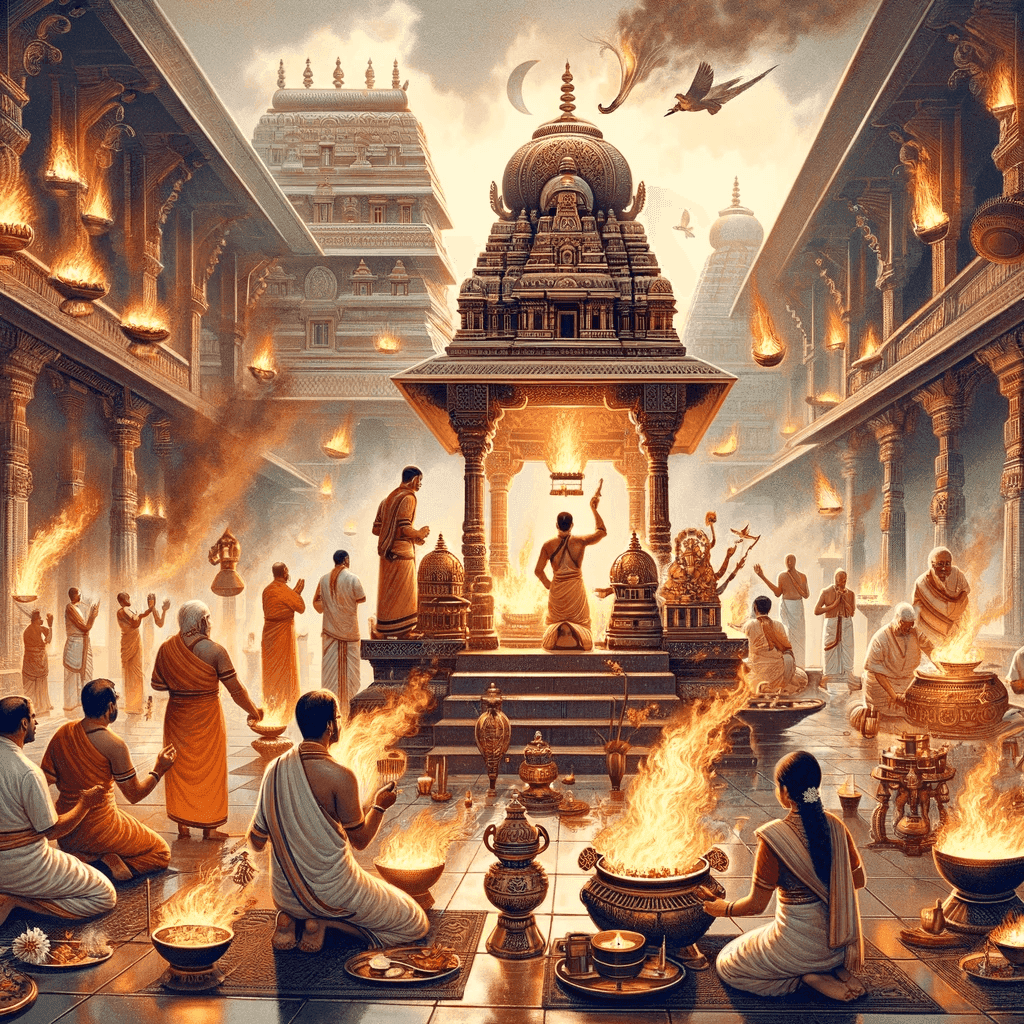The Diversity of Practices in Sanatan Dharma
A common misconception about Sanatan Dharma (Hinduism) is that all its practices involve fire rituals. While fire rituals, known as yajnas or homas, are significant, Sanatan Dharma encompasses a wide range of spiritual practices, including various forms of worship, meditation, and devotion, each with its unique significance and purpose.
Myths/Truths and Other Details

Why There is a Myth?
The prominence of fire rituals in major ceremonies and the visual appeal of these rituals might lead to the misconception that they are the sole form of practice in Sanatan Dharma. However, the spiritual landscape of this tradition is much more diverse.
What's the Truth?
Sanatan Dharma offers a variety of spiritual practices that cater to different aspects of human experience and spiritual development. These practices are designed to suit the diverse needs, temperaments, and stages of spiritual growth of individuals.
Diversity in Spiritual Practices
- Fire Rituals (Yajnas and Homas): These rituals are performed to invoke divine blessings, purify the environment, and symbolize the transformation of material offerings into spiritual energy.
- Meditation and Yoga: Practices like meditation, yoga, and pranayama focus on inner growth, self-realization, and the harmonization of body, mind, and spirit.
- Devotional Worship (Bhakti): Devotional practices include singing hymns, chanting mantras, and performing pujas, fostering a personal and emotional connection with the divine.
- Philosophical Study: The study of scriptures like the Vedas, Upanishads, Bhagavad Gita, and others is also a key aspect of Sanatan Dharma, offering deep philosophical insights and ethical guidance.
Symbolism and Philosophical Significance
- Symbolism in Rituals: Many rituals in Sanatan Dharma are rich in symbolism, representing cosmic truths and spiritual principles. For instance, the lighting of a lamp symbolizes the removal of ignorance through knowledge.
- Philosophical Foundations: The diverse practices are rooted in the philosophical teachings of Sanatan Dharma, emphasizing concepts like dharma (righteousness), karma (action and consequence), and moksha (liberation).
Modern Relevance and Global Influence
- Contemporary Adaptations: In modern times, these practices have been adapted to contemporary lifestyles, maintaining their spiritual essence while being relevant to current societal contexts.
- Global Impact: The spiritual practices of Sanatan Dharma have influenced global spiritual and wellness movements, promoting holistic well-being and ethical living.
...




